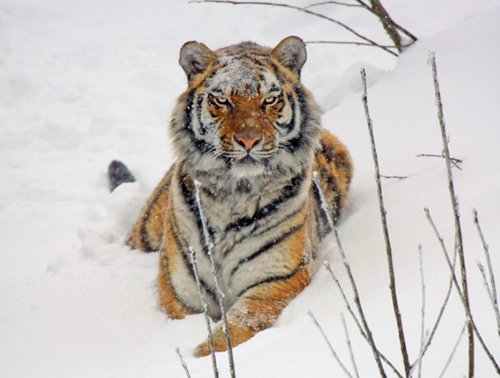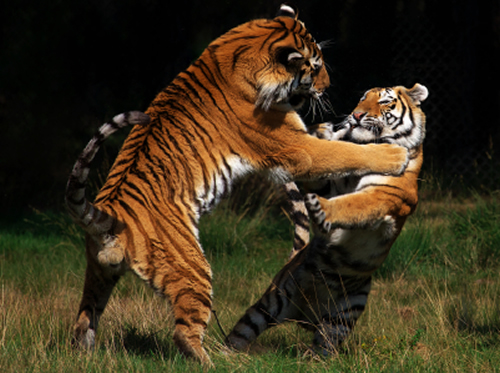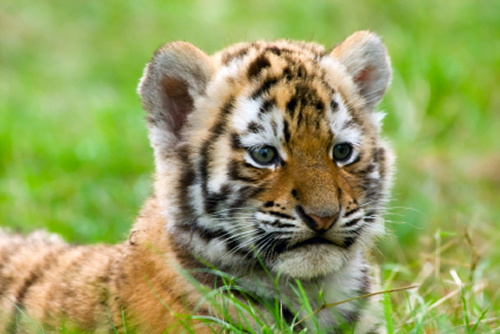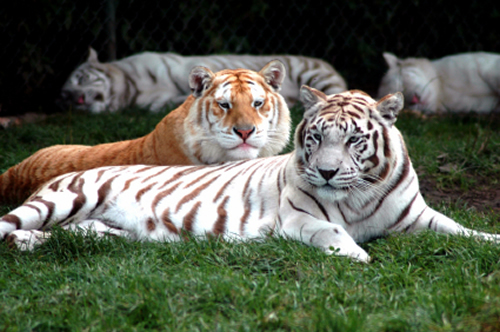
The biggest threat to the tiger’s survival is
the illegal trade in tiger parts, which continues in China and parts of
Southeast Asia.
Tigers are one of the most widely recognized and beloved animals on Earth, yet a cultural obsession with tiger bones and body parts has left this species perched at the very edge of extinction.
While diminishing habitat is an issue, the main reason for the
tiger’s demise is the tiger trade in China and parts of Southeast Asia.
Despite an international ban on trade in tiger parts, this illicit
market is thriving, aided by “captive breeding” loopholes which provide a
cover for wildlife traffickers.
In recognition of Global Tiger Day (July 29th), we’ve compiled a few tiger facts.

Despite an international ban on trade in
tiger parts, this illicit market is thriving, aided by “captive
breeding” loopholes which provide a cover for wildlife traffickers.
1. There are only about 3,200 wild tigers still surviving. 100 years ago, there were 100,000.
- Amur Tiger (Panthera tigris altaica)
- Bengal Tiger (Panthera tigris tigris)
- Indochinese Tiger (Panthera tigris corbetti)
- Malayan Tiger: (Panthera tigris jacksoni)
- Sumatran Tiger: (Panthera tigris sumatrae)
- South China Tiger: (Panthera tigris amoyensis)
2. After a gestation period of 103 days, tigers give birth to an average of two or three cubs; however, they can have up to seven.
3. Unlike most cats, tigers enjoy swimming and will even dive underwater.
4. Wandering male tigers often kill tiger cubs to make the female receptive to mating.

After a gestation period of 103 days, tigers give birth to an average of two or three cubs; however, they can have up to seven.
5. The largest tiger species is the Amur (Siberian)
tiger, with males reaching 10 feet (about 3 meters) in length and
weighing 400 pounds (181 kilograms). The smallest is the Sumatran tiger,
at about 220 pounds (110 kilograms).
6. Tigers have around 100 stripes. Each tiger’s stripes are unique – like a fingerprint.

Wandering male tigers often kill tiger cubs to make the female more receptive to mating.
7. It has been estimated that 80% of white tigers
die from birth defects associated with the inbreeding necessary to
produce the white coat.
8. In the wild, a tiger’s life span is 15 – 20 years; in captivity, they have reached 26 years of age.

It has been estimated that 80% of white
tigers die from birth defects associated with the inbreeding necessary
to produce the white coat.
9. According to Chinese superstition, drinking tiger
bone wine is a health tonic for treating common bone-related ailments
such as arthritis. Tiger bone wine is made from the carcass of a tiger
soaked in rice wine.
10. Three subspecies of tigers have been driven to extinction in the last 80 years: The Bali tiger, Caspian Tiger, and Javan tiger. (See fact 9.)
To learn more about the tiger situation, check out Global Efforts to Protect Tigers Undermined by China.


No comments:
Post a Comment